About CWAS
It is estimated that globally nearly 750 million people lack adequate access to drinking water and 2.5 billion people lack access to improved sanitation facilities. Provision of appropriate water and sanitation services in human settlements has been recognized as an important goal globally and nationally.
In 2009, CEPT University began a pioneering project on Performance Assessment System for urban water and sanitation (PAS Project). This project has spawned and supported further research activities at CEPT Research and Development Foundation (CRDF). This body of work prompted CEPT to establish a centre to focus on improving water and sanitation services in India.
The Center carries out various activities including action-research, training and advocacy. – working closely with city and state governments, enabling them to improve delivery of services. CWAS is closely engaged with Faculty of Planning at CEPT University.
CEPT University’s core focus is human habitat. Through its education, research and advisory activities, it strives to improve the impact of habitat professions in enriching the lives of people in India's villages, towns and cities.
CEPT Research and Development Foundation (CRDF) is established by CEPT University to manage their research and capacity building activities. There are nine domain-focused centers in the CRDF. The Center for Water and Sanitation (CWAS) is among the first centers to be established.
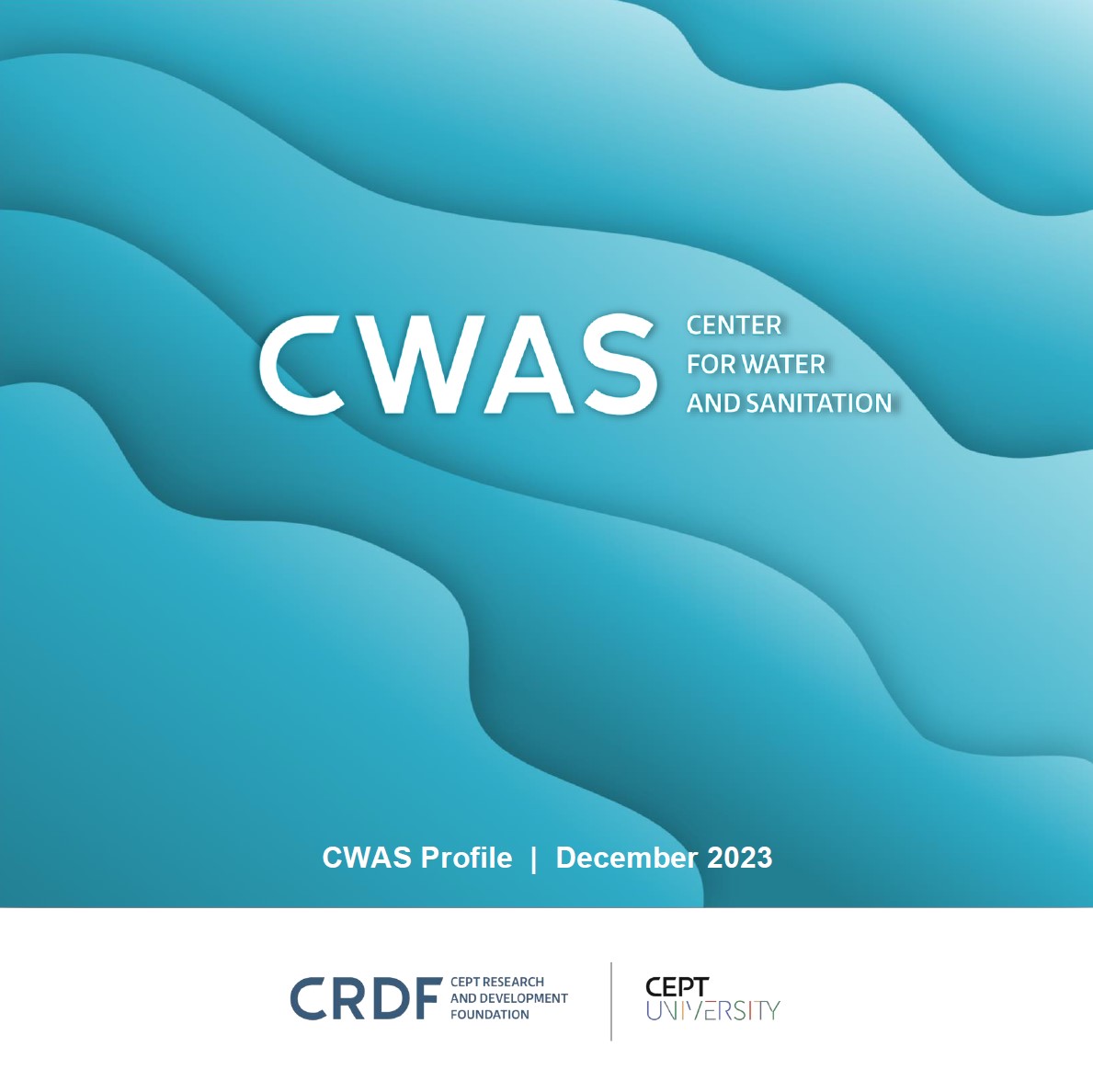
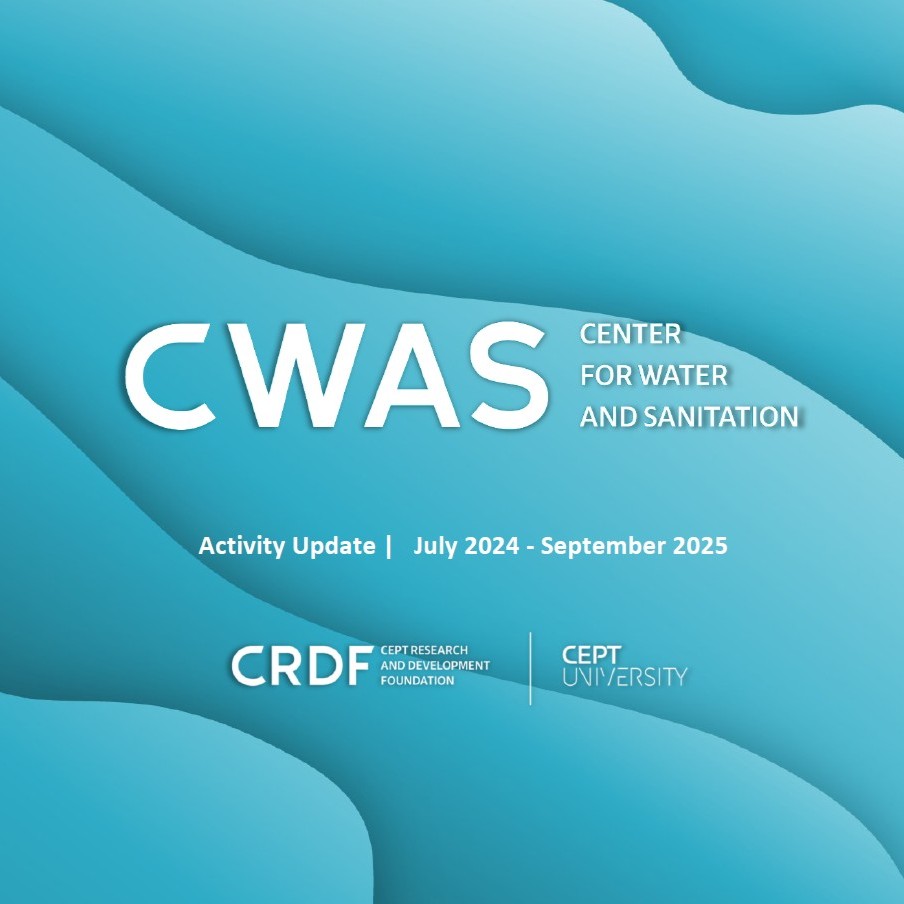
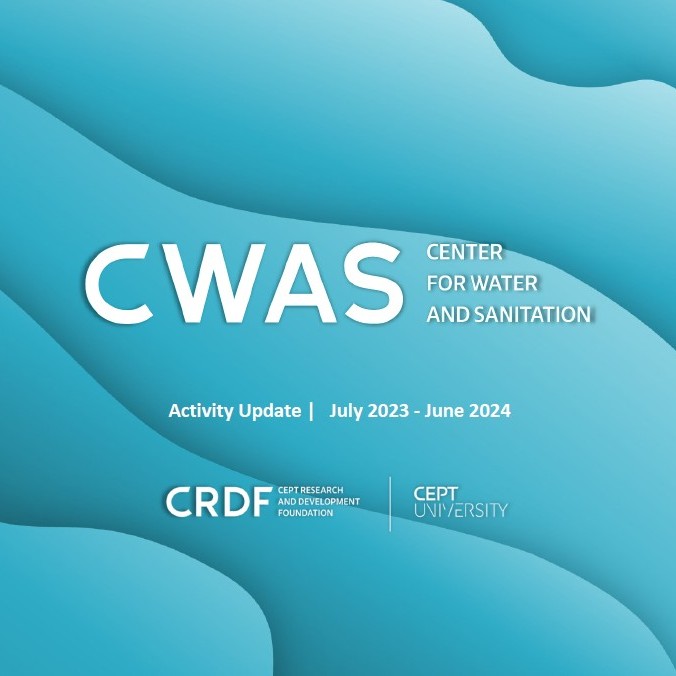
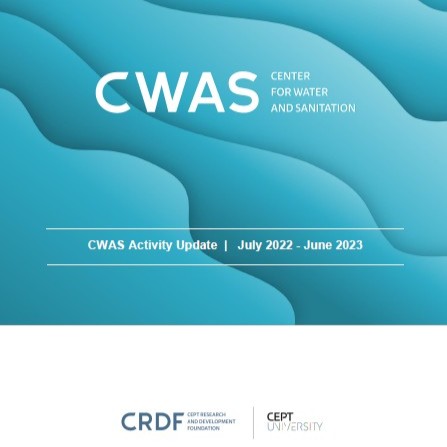
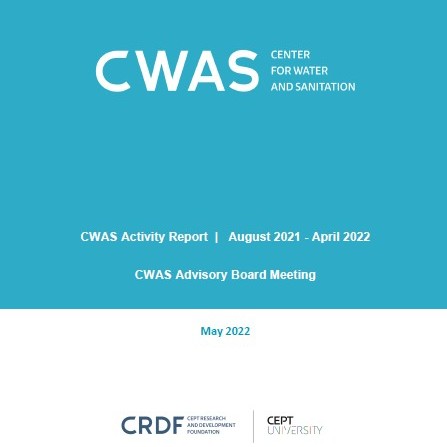
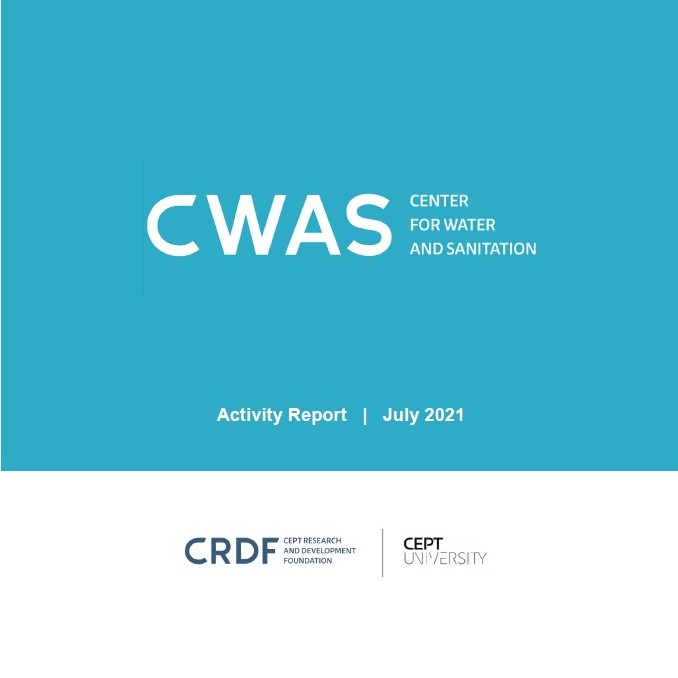

CWAS initiatives are designed to enable governments strengthen delivery of urban services. Acting as a thought catalyst and facilitator, CWAS works closely with all levels of governments—national, state and local to support them in delivering water and sanitation services in an efficient, effective and equitable manner.